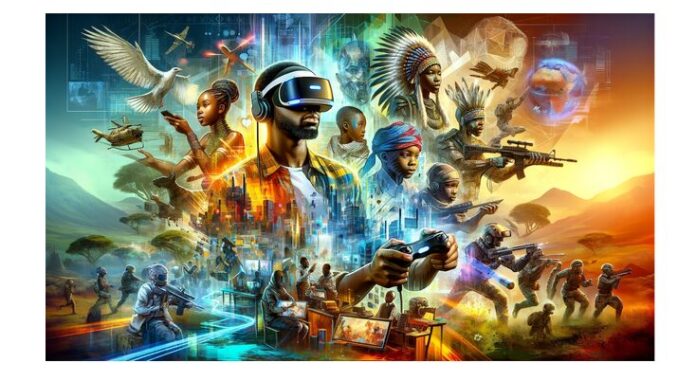The gaming industry in Africa is witnessing a remarkable transformation, thanks to the advent of Virtual Reality (VR). As we step into 2024, VR technology is not just a futuristic concept but a reality that’s reshaping how games are played and experienced across the continent.
The Emergence of VR in African Gaming
Virtual Reality has introduced a new dimension to gaming in Africa, offering immersive experiences that were once deemed impossible. Traditional gaming relied on screens and controllers, but VR brings players right into the heart of the action.
One platform that’s harnessing the power of this technology is Surebets, which offers a unique blend of gaming excitement and immersive experience.
The Key Elements of VR Gaming in Africa
- Immersion: Players experience a sense of being ‘inside’ the game, making it more engaging.
- Interactivity: Enhanced interaction with game elements through motion sensors and VR headsets.
- Innovative Gameplay: New game designs that leverage the 3D space VR provides.
VR Technology: Advancing Gaming Experiences
The technological backbone of VR is fascinating, involving sophisticated software and hardware components.
Understanding VR Tech
- Head-Mounted Displays (HMDs): The primary tool for experiencing VR, offering high-definition visuals.
- Motion Tracking: Sensors that detect player movements, translating them into game actions.
- Spatial Audio: Creating a 360-degree audio environment for a more realistic experience.
Challenges and Opportunities in VR Gaming
While VR brings excitement, it also presents unique challenges in the African context.
Overcoming Hurdles
- Cost: High price of VR equipment can be a barrier.
- Infrastructure: The need for better internet connectivity to support seamless VR gaming.
Opportunities Ahead
- Growth in Gaming Markets: Increased interest in VR games can boost the gaming industry.
- Educational and Training Applications: Beyond entertainment, VR can offer innovative learning experiences.
The Future of VR in African Gaming
As we look forward, the potential of VR in African gaming is boundless. We’re likely to see more localized content, better accessibility, and innovative uses of VR technology.
Predictions and Trends
- Increased Accessibility: More affordable VR solutions for the average consumer.
- Local Content Development: Growth in locally developed VR games that reflect African cultures and stories.
Enhancing Social Interactions through VR
Virtual Reality is not just revolutionizing the way games are played; it’s also transforming how players interact with each other. In Africa, where community and social connections are deeply valued, VR introduces an innovative way to socialize and connect.
Building Virtual Communities
- Online Multiplayer Experiences: VR enables players to interact in a shared virtual space, regardless of physical location.
- Cultural Exchange: Players from different parts of Africa and the world can share their cultures within VR environments.
- Social VR Platforms: Rise of platforms that are specifically designed for socializing within VR.
The Role of VR in Education and Training
Beyond gaming, VR’s impact in Africa extends to education and training sectors. This technology offers practical, immersive learning experiences that are both engaging and effective.
Educational Applications
- Virtual Classrooms: Providing interactive and immersive learning experiences for students.
- Skill Development: Training in various fields like medicine, engineering, and more through realistic simulations.
- Cultural Preservation: Using VR to teach and preserve African history and cultural heritage.
The Economic Impact of VR on the Gaming Industry
The adoption of VR technology is also significantly influencing the economy of the gaming industry in Africa. This shift is not just technological but also financial, opening new markets and creating job opportunities.
Economic Contributions
- Job Creation: New career paths in VR game development, marketing, and distribution.
- Market Expansion: Attracting global investments and partnerships, expanding the African gaming market’s reach.
- Local Development: Encouraging local content creation and entrepreneurship in the VR gaming sector.
Innovations in VR Hardware and Software
Continuous advancements in VR hardware and software are essential for the growth of VR gaming in Africa. These innovations make VR more accessible and enjoyable for a wider audience.
Key Advancements
- Wireless Headsets: Improving comfort and freedom of movement for users.
- Enhanced Graphics: Offering more realistic and visually stunning game environments.
- User-Friendly Software: Making VR games easier to develop and more intuitive for players.
In conclusion, Virtual Reality is not just altering the gaming landscape in Africa; it’s revolutionizing it. By offering immersive experiences, presenting new challenges, and opening up uncharted opportunities, VR is a game-changer in the truest sense. As technology advances, we can only imagine the heights that VR gaming will reach in Africa and beyond.






